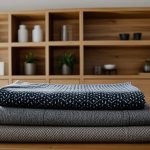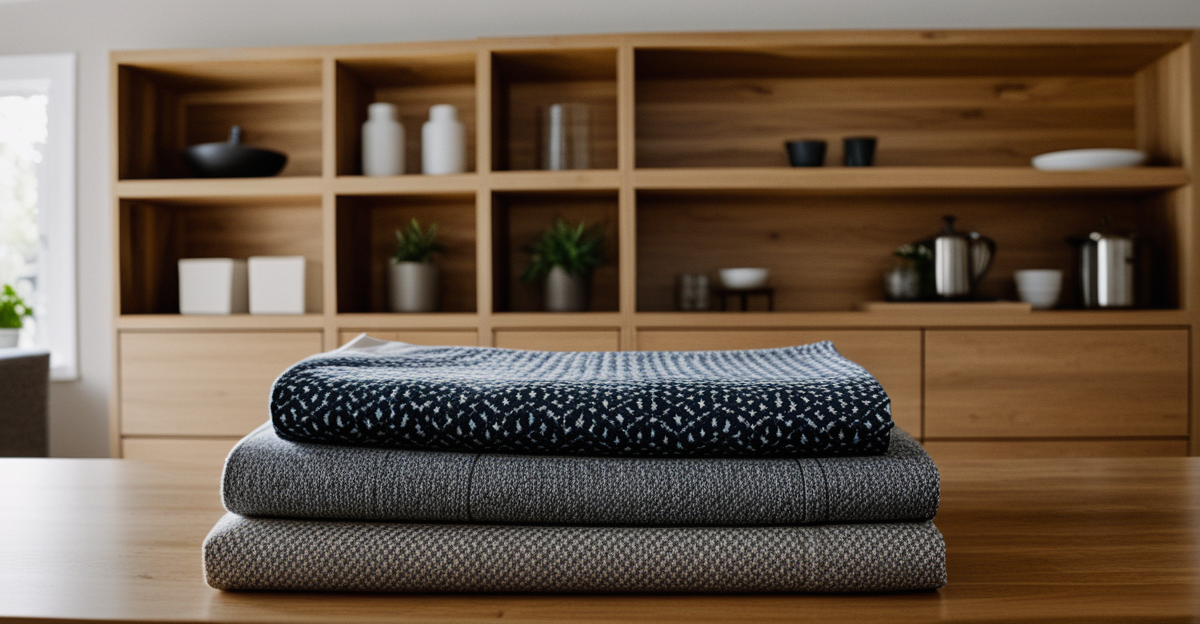Key Psychological Benefits of Decluttering
Creating a clutter-free environment can significantly reduce stress and anxiety. Research shows that physical mess contributes to heightened cortisol levels, the hormone linked to stress. When you clear away clutter, your mental space feels calmer, helping lower those stress markers.
Does tidiness really improve your mood? Yes, a clean space supports better emotional regulation. It encourages positive feelings and a sense of accomplishment. The psychological effects of clutter often manifest as distraction and irritability, so removing mess promotes emotional balance.
Scientific studies back these benefits. For example, experiments measuring mental health found participants reported less anxiety and improved mood after organizing their homes. Decluttering helps the brain process information more efficiently, reducing sensory overload.
In short, the powerful link between mental health, stress reduction, and a tidy space is clear. Making decluttering a habit not only refreshes your surroundings but fosters long-term emotional benefits by promoting calmness, focus, and positivity. Prioritizing an organized space is a simple, practical investment in your well-being.
Physical Health Improvements from a Tidier Home
Maintaining a clutter-free home positively influences physical well-being by reducing common health hazards. Regular decluttering removes dust and allergens that accumulate in cluttered spaces, directly improving indoor air quality. This benefit is crucial for those with allergies or respiratory conditions, as a cleaner environment supports easier breathing and fewer flare-ups.
How does home organization affect sleep? Studies reveal that an organized bedroom fosters better sleep quality by creating a calming atmosphere and reducing distractions. Improved sleep contributes significantly to overall physical health, from increased energy to enhanced immune function.
Clutter often hides risks such as tripping hazards, mold growth, or pest infestations. Removing unnecessary items diminishes these dangers, lowering the chance of injury or illness in the home. The health benefits extend beyond comfort; they can prevent accidents and reduce long-term medical issues linked to poor living conditions.
In short, a tidier home is linked closely to improved physical health. By embracing regular decluttering and home organization, individuals can create safer, cleaner, and more restful living spaces that promote overall wellness. Prioritizing this aspect of cleanliness complements mental health gains and leads to a comprehensively healthier lifestyle.
Boosting Productivity and Focus with Decluttering
A cluttered environment disrupts concentration by overwhelming the brain with unnecessary stimuli. Removing excess items leads to clearer mental pathways, improving focus and allowing quicker task completion. When your workspace is organized, cognitive resources are freed from distractions, enhancing both productivity and work quality.
How exactly does decluttering improve productivity? Studies reveal that an orderly space reduces cognitive load, helping individuals sustain attention longer and reduce errors. For example, employees working in tidy offices complete tasks up to 15% faster than those in cluttered rooms.
In remote work or study settings, workspace organization is especially critical. Designating specific areas for work and storage creates a physical boundary that supports mental separation between tasks and relaxation, boosting efficiency and preventing burnout.
To maintain this clarity, experts recommend daily or weekly tidying routines, such as organizing documents and clearing surfaces before ending the day. This habitual decluttering keeps the workspace refreshing and prevents distractions from building up, sustaining high levels of productivity over time.
Ultimately, investing in an organized environment isn’t just about aesthetics—it is a powerful tool for enhancing focus, streamlining workflow, and supporting long-term success at work or study.
Practical Strategies for Starting the Decluttering Process
Starting decluttering can feel overwhelming, but breaking it down into manageable steps makes a big difference. First, focus on small zones rather than the entire home—choose a single drawer, shelf, or corner to organize. This approach creates quick wins, boosting motivation to continue.
Time management is crucial. Allocate short, consistent blocks, such as 15–20 minutes daily, to prevent burnout. This steady pace allows progress without feeling stressed. Setting timers can help maintain focus and avoid distractions during tidying sessions.
Another effective method is the “four-box technique”: label boxes for “keep,” “donate,” “trash,” and “relocate.” Sorting items into these clearly defined categories simplifies decision-making and speeds up the process.
To maintain organization long-term, establish daily or weekly habits—like returning items to designated spots immediately and conducting quick surface clears before bedtime. These maintenance habits prevent clutter from accumulating again, supporting ongoing stress reduction and positive emotional benefits.
Incorporating these organization methods not only streamlines the decluttering journey but also reinforces the psychological effects of clutter by fostering control and calmness within your living space. Starting small, staying consistent, and maintaining routines empower you to enjoy the full mental and physical benefits of a tidy home.
Boosting Productivity and Focus with Decluttering
A cluttered environment distracts your brain, splitting attention and reducing concentration. Clearing away unnecessary items simplifies your surroundings, freeing cognitive resources to enhance focus and speed up task completion. This happens because clutter increases cognitive load, forcing your brain to process irrelevant stimuli and lowering productivity.
How does decluttering boost productivity in practical terms? Studies show organized workspaces enable individuals to complete tasks up to 15% faster and with fewer errors. This is especially relevant for remote workers or students, where workspace organization creates a clear boundary between professional tasks and relaxation, helping maintain mental clarity and reduce burnout.
Maintaining a clutter-free environment involves habits like clearing desks and organizing documents regularly. Experts suggest short, daily routines for tidying, as consistent attention prevents distractions from building up, supporting sustained productivity.
In short, cultivating an orderly space is more than tidiness—it directly supports your ability to concentrate deeply, complete work efficiently, and stay mentally sharp over time. Effective workspace organization transforms how you approach tasks, making your efforts more impactful and your workday less stressful.


